Six months before the 2022 federal election, Anthony Albanese waxed lyrical about how a Labor government would tackle housing affordability:
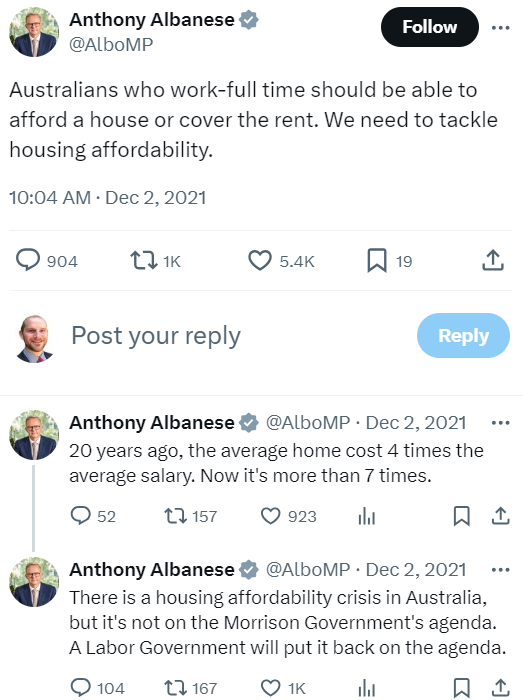
Albanese said that “Australians who work-full time should be able to afford a house or cover the rent”.
“20 years ago, the average home cost 4 times the average salary. Now it’s more than 7 times”, Albanese lamented.
“There is a housing affordability crisis in Australia, but it’s not on the Morrison Government’s agenda. A Labor Government will put it back on the agenda”, Albanese promised.
Housing affordability has unambiguously deteriorated under the Albanese government.
According to Domain, median house rents soared by $180, or 38%, from $470 to $650 between September 2021 and September 2024.
Over the same period, median unit rents rose by $210, or 50%, from $420 to $630.
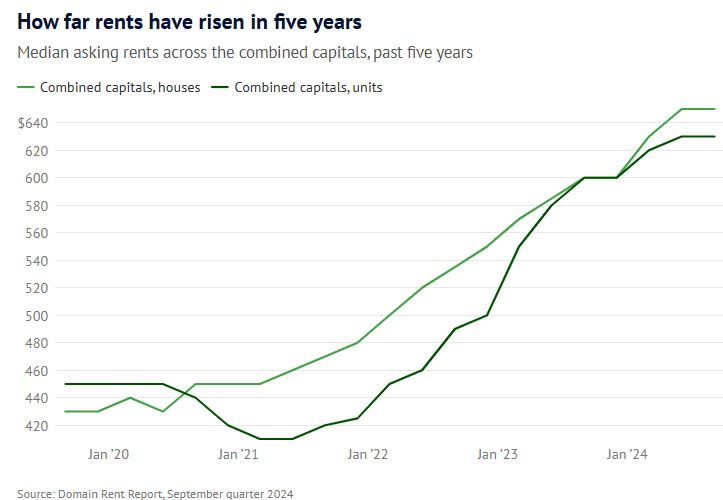
The cost of purchasing a home has also never been more unaffordable.
According to PropTrack, a median-income household earning just over $112,000 a year was only able to afford 14% of homes sold across the nation over the past year:
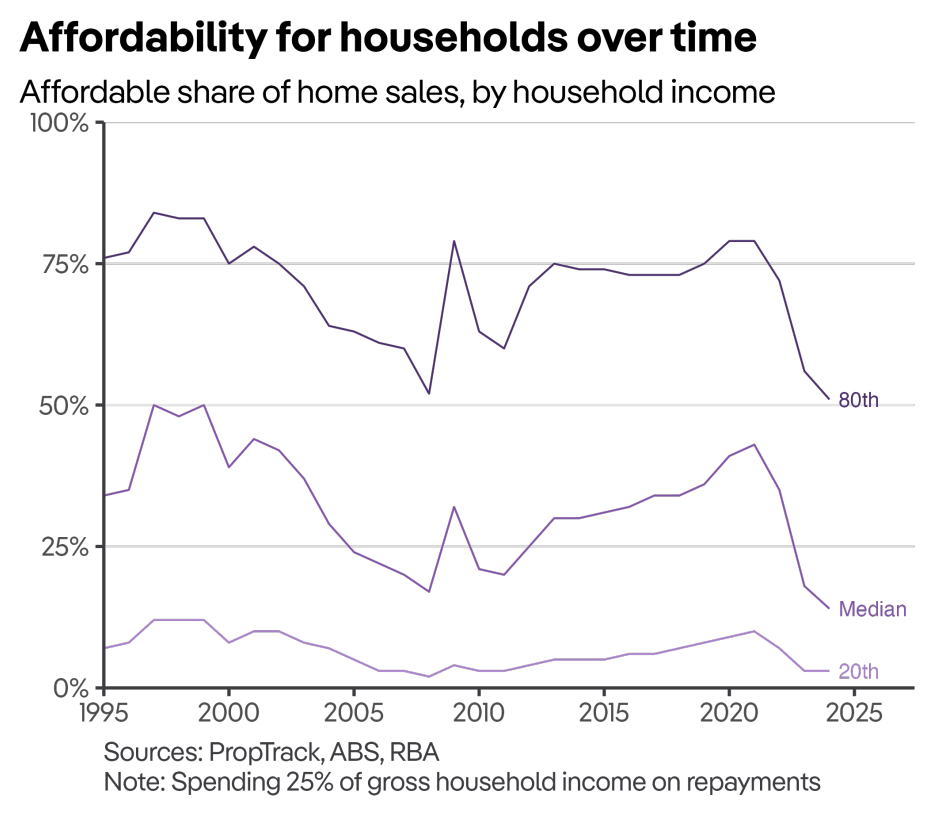
A median-income renting household could afford just 11% of homes sold over the past year (and just 9% of houses).
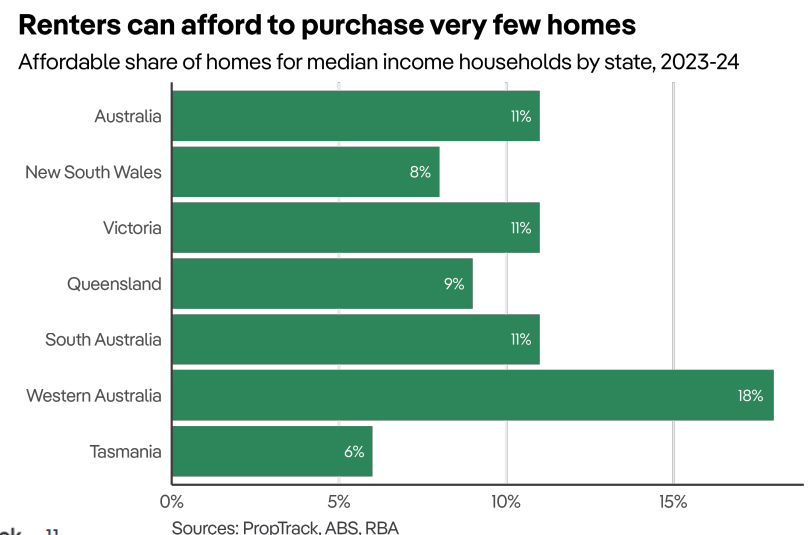
Now opposition leader Peter Dutton has promised to improve housing affordability under a future Coalition government:
With properly managed migration, we can tackle the housing crisis and help get Australians into their first home. pic.twitter.com/MMofo3uHu5
— Peter Dutton (@PeterDutton_MP) October 17, 2024
Dutton pledged to spend $5 billion on water, sewage and other enabling infrastructure for shovel-ready developments with the aim of building up to 500,000 new homes in five years.
He also claimed that the Coalition would free up 100,000 existing homes over five years by cutting migration, imposing a two-year ban on foreign investors and temporary residents from purchasing existing homes, and capping the number of overseas students.
“At the same time, the Coalition will work with the building and construction industry to ensure there are enough skilled and temporary skilled visas for those with essential skills to support our local tradies to build the homes we need”, he said.
“We need to get our country back on track, and restore the Australian dream of home ownership”.
Funding enabling infrastructure (high capacity sewer and water services) is good policy as it enables works to open up new areas for development.
However, it will be futile without cutting immigration, given that migrants purchase nearly three-quarters of homes in new housing estates:
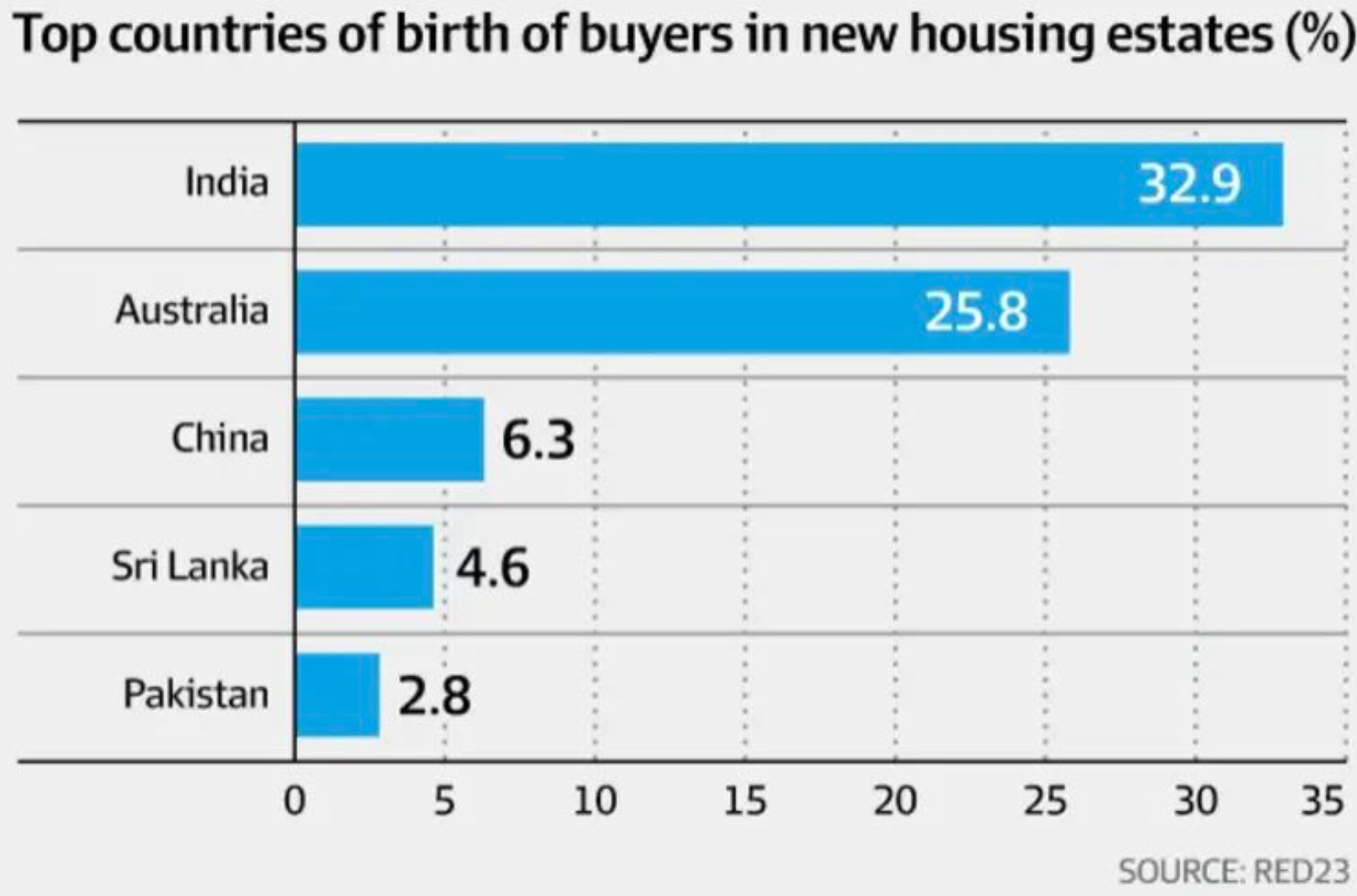
This is why the Coalition’s pledge to cut overall net overseas migration is so important and is actually the key plank of its housing policy. Otherwise, it will simply spend $5 billion for infrastructure to house new migrants.
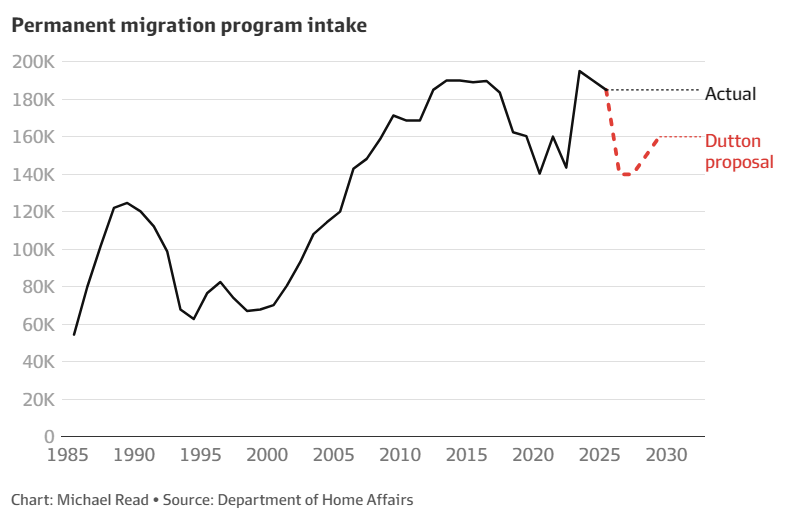
Regardless, Australian voters seem to be warming to the Coalition on housing, with the latest AFR Freshwater polling showing it well ahead of Labor on housing and immigration:
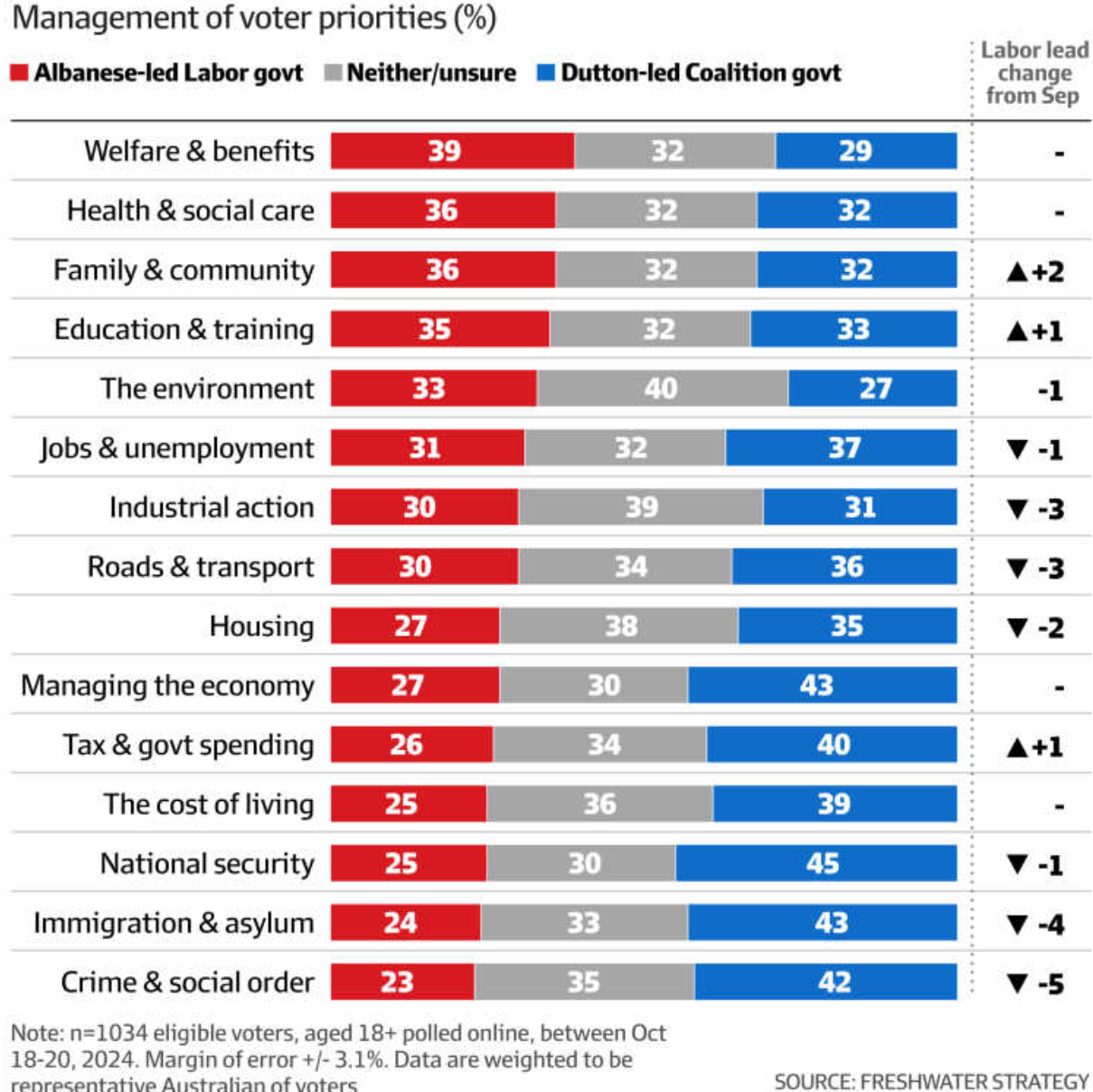
Voters look ready to punish Labor for pretending to care about housing and actively making the situation worse via its extreme immigration policy.

